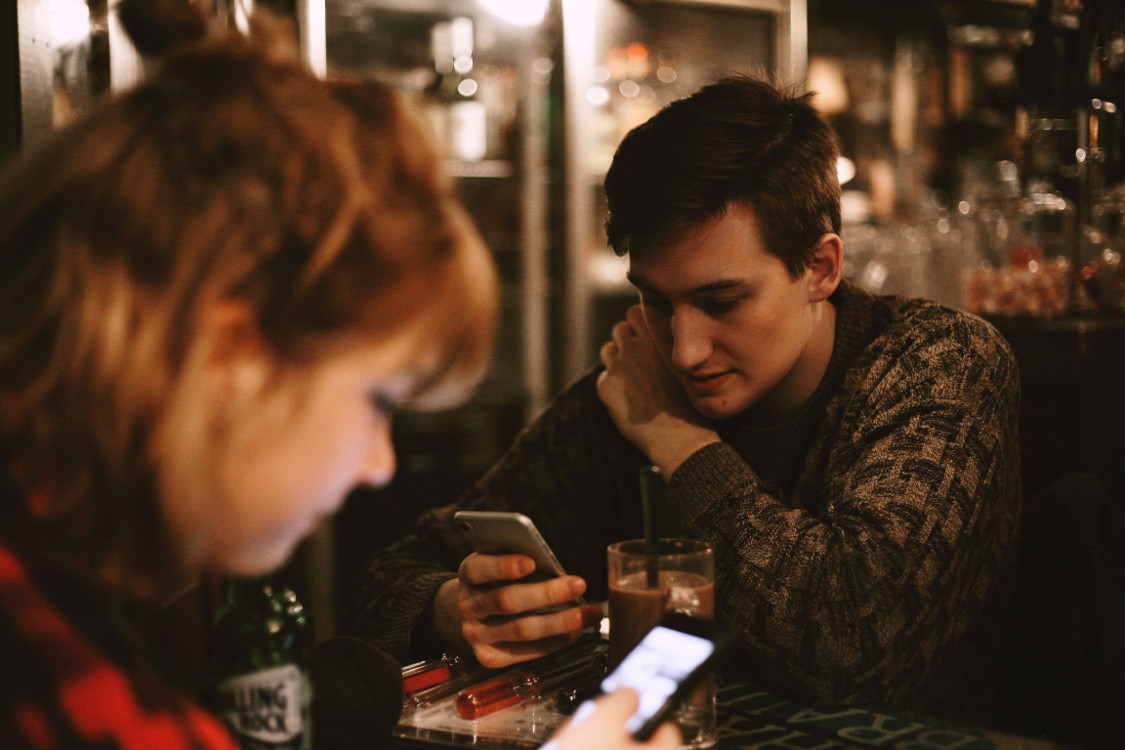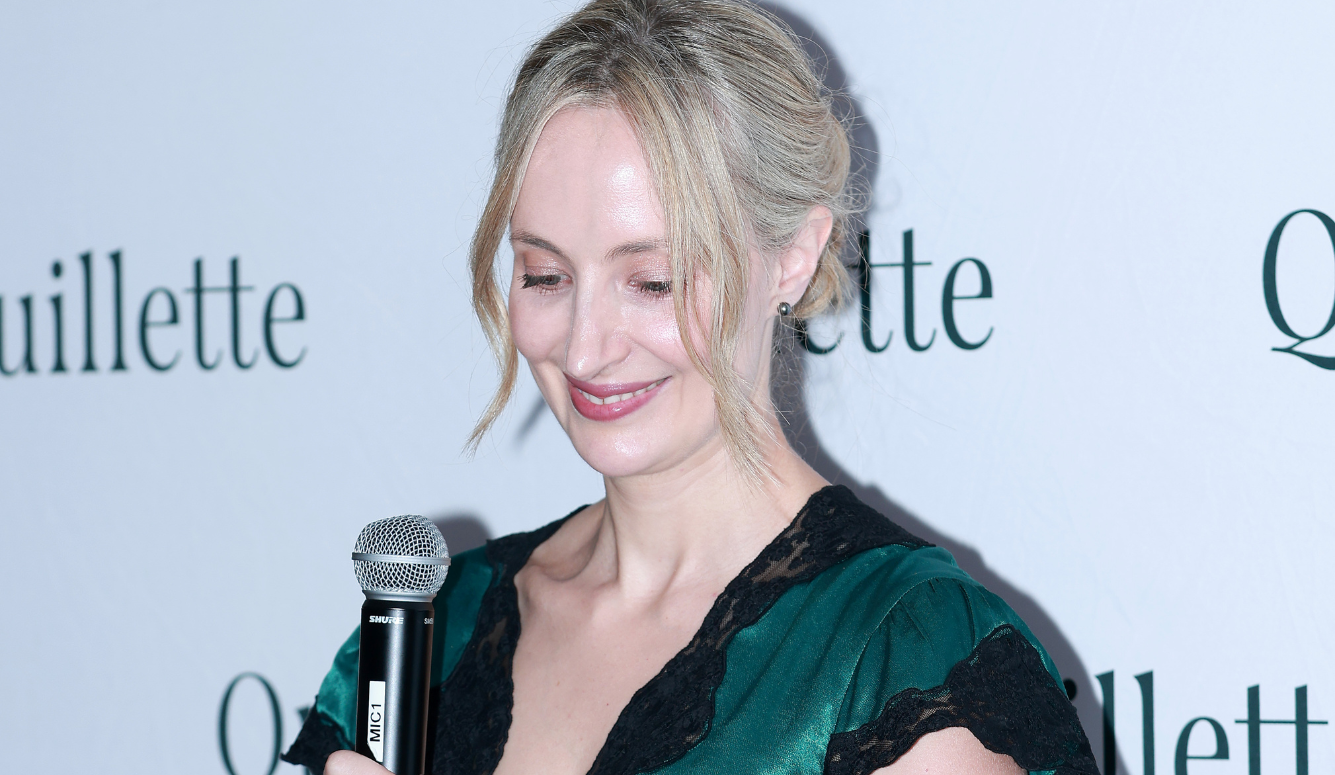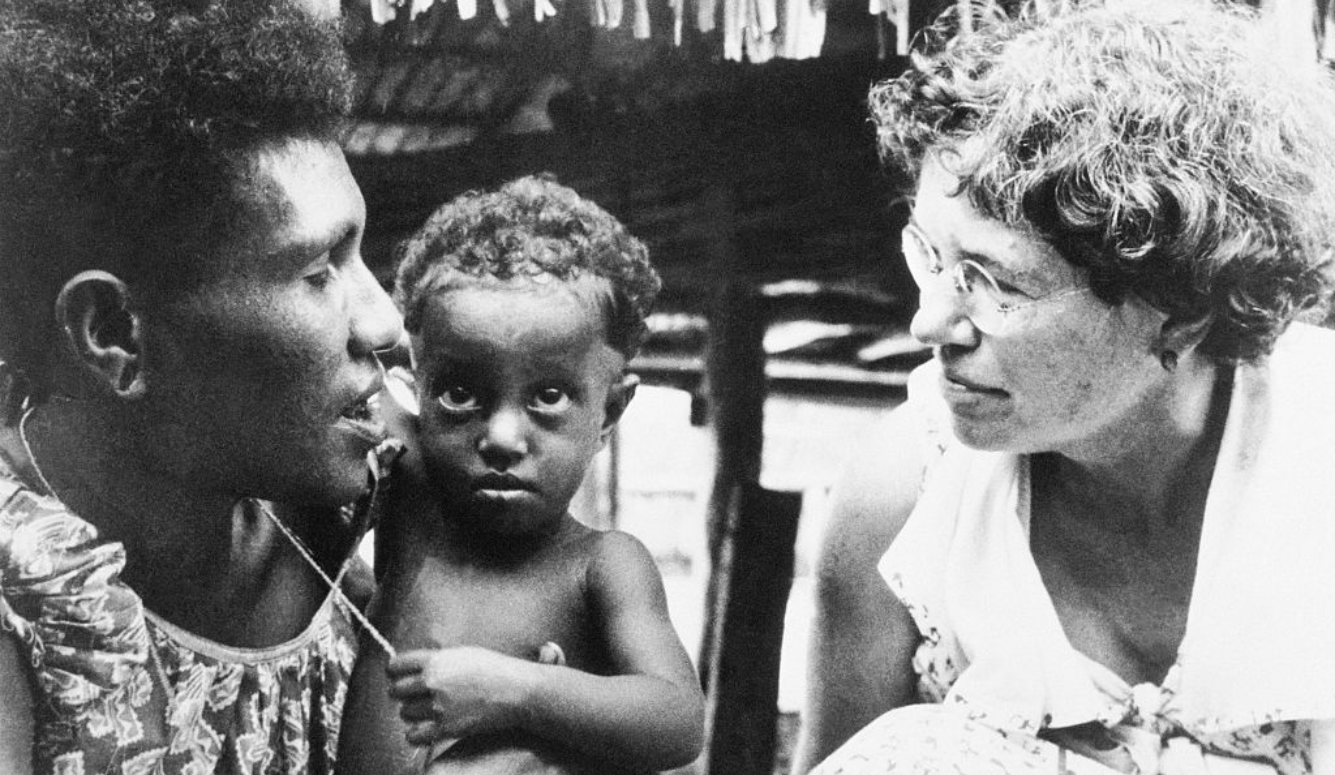Top Stories
Tinder and the Tyranny of Language
If you are young, that typically involves re-installing an app like Tinder and giving the dice of fate another proverbial throw.

Dating in the modern age can be something of a paradox. Apps like Tinder have delivered untold access to a virtually endless, digitally filtered cohort of eligible partners; while contraception has rendered the evolutionary severe consequences of poor mate selection, null and void. And yet courtship via social media still has a stubborn tendency to function quite awkwardly. My understanding of the human brain, and evolutionary context that produced it suggests to me that in using an emotionless symbolic language to organise our sexual selection—we utilise our brains in all the wrong ways—and bring about pairings that are remarkably conservative in their negotiation; verging on pathological in their outcome. Welcome to the tyranny of language.
Relationships end and life goes on. If you are young, that typically involves re-installing an app like Tinder and giving the dice of fate another proverbial throw. I first started using these apps when they were something of a social taboo, but the danger attracted all the right people, and you were always sure to meet somebody open and interesting. That was five years ago when I was still in my twenties. This time, the experience is quite different, and—perhaps due to the median age being higher—is bringing about courtship rituals that are conspicuously low-trust, and notably zero-sum. When I contrast these back to the more successful encounters that have punctuated my life, I am struck by some glaring contrasts. The conclusions I reach are not promising.

The archetypal romantic encounter often takes form as a holiday romance—usually in some small hostel, at the ends of the earth. A gradual build-up of tension, desire, and reciprocal ambiguity results in a chance explosion of intimacy—and you are liable to spend just about every waking moment with that person, in each other’s space, until the fateful return to reality that awaits every traveller. It works, perhaps, because it mimics on some psychological level, Dunbar’s number, being the social dynamics of the human tribe, and the brain’s relative sense of intimacy within a finite framework of people. The hostel becomes the safe space— becoming the tribe itself—and fleeting adventures into the unknown, outside world, only serve to highlight the comfort and familiarity of returning to that same little group, at the end of each day; with that special somebody standing out above all. A person does not date, per se—a person simply lives—and the so-called “pair-bond” becomes something of a path of least resistance. In such a claustrophobic social gestalt, there is no capacity for artificial distance, but you simply don’t notice.
Now, contrast this with something like Tinder. Forget about a slow build up of sexual tension, because a photo can’t instil a great deal of that. Forget an ambiguous sense of longing, and hope, and unbearable desire; you have both just swiped each other, and the rest is just a negotiation. It’s transactional. You rate them against the five or so other people you are simultaneously chatting with, and either lure them into revealing something deal breaking, some hidden flaw that you will promptly use to jettison them; or uncover some hidden trove of bonus points, that swings things into a decisive territory.
Should you find yourself on an actual, face to face date—the high-stakes transactions can really begin. It starts to dawn on you, that you are actually participating in a macabre arranged marriage, of sorts; except that it is being arranged by a computational algorithm, which has coincidentally broken down, and you are forced to run the sorting loop on your own, having no idea how it’s actually done.
If you are a straight male, at my age, the algorithm works like this. You swipe girls that you find attractive. If you are yourself attractive, or at least photogenic; about one in every fifty will swipe you back. So far so good. You say “Hello”—or something hopefully more original—half will respond with a similar greeting, and half will not reply at all. But you have been a very active swiper, and should have a few good conversations going every week. Biological realism, being what it is; these quickly come around to the question of earning potential, career stability and willingness to commit to long-term. Answering poorly on any of these metrics will end a conversation almost instantly, including having hinted at the original sin of being too recently broken up. But assuming you can survive all this and can weave a half-way compelling narrative for your own presence here; you may upgrade your prospects, by shifting the conversation to WhatsApp.

Now you are cooking with gas! Expect several days of intimate, evocative and tantalising back-and-forth, conversations running into the early hours of the morning, a reliable hit of dopamine at the peering at of one’s lock screen. You organise a face to face, a real live date—and the anxiety hits infinity, as this person who you have finally clicked with, will suddenly become real. So you meet up, and you can’t even recognise them. To make matters worse, you never actually do. Their digital persona is more familiar than anything physical existence can do justice to, and you fade out of each other’s lives, wondering who that imposter actually was, and how they got that other person—the one who you really felt something for—to type all those sweet and lovely messages. The hollow feeling grows profound, as you slowly realise, that you never will get to find out and that maybe, just maybe, you have actually lost your mind.
It took some serious contemplation, to untangle why I was repeating this cycle. In part, I can attribute my recently improved skills as a writer, in building an entertaining and beguiling narrative, and pulling somebody haplessly into it. Maybe I am just too good at this? No. It’s something else entirely. I revisited my best encounters, ones that became lasting and rewarding friendships, relationships or anything in between. What pattern did these follow? I can say for certain—these addictive, high-frequency textual exchanges, giving one’s phone a poker-machine like quality—came at the tail end of months of physical intimacy, if they came at all. We existed, perhaps, in a much more tribal state. Every waking moment together, where it was at all practicable; no zero-sum playing of games, no existential desire to weed out deal-breaking traits and experiences, like landmines in a Cambodian rice field, lest they blow up under your tread, leaving you gamed by some malevolent sentient other. When you fall in love the way that you do when you travel, the world has a way of contracting and such details fade into irrelevancy. When you scour the Internet for mates using Tinder, the world has a way of expanding—and nobody is ever good enough, and nobody, ever, can be trusted: to be all they appear to be; to be who they say.
What is the end result of courtship filtered through the language-producing networks of the human brain? Depending on the theory you subscribe to, it’s certainly not pretty. Iain McGilchrist, in his seminal work on brain laterality, makes the case that when it comes to human communication, abstract symbolic language is largely an output of the left cerebral hemisphere, while the more intangible aspects—such as melody, tone, prosody, gesture and sarcasm—are predominantly produced within the Right. Accordingly, what the Left hemisphere contributes, by way of its intrinsic cognitive method, is controlling, pedantic, binary, categorical, and prone to expressing affection through argument and dominance. This is, thankfully, balanced by the influence of the Right—which has a considerable preference for things that live, things that are beyond categories, things that are transient and intangible, but, ultimately, things that can never be grasped, can never be manipulated or utilised and can never be measured. The frustration of one becomes the saving grace of the other, and together, balanced communication is made possible by engaging the many dimensions of a thing, person, feeling or event—and in particular regards to the intimate—allowing the spontaneity and thrilling intensity of unexpected touch, and physical expression, to render inert the obsessive mechanical logic of a purely symbolic dialogue.
When it comes to human courtship, shutting the hell up and following one’s instinct can be the best thing you ever did.
Can courting a mate, through such restrictive and insular communicative dimensions, lead to these dramatic differences in perception? Can this theory account for the subjective experience of being in the company of a stranger (in person) while being in the thick of a long-term relationship when you open up your phone? How can we take ourselves all the way into the depths of textual intimacy, with a person we haven’t held or touched? Haven’t even kissed? Haven’t even seen? The alternative, I know, is to simply hold off on the damned texting. But then you have to consider that both of you are still on tinder and that matches are being made and dates organised. And if you want to hold a hope in hell of staying within that special somebody’s sphere of attention, well, best get texting right away, and best think of something interesting.
I’ve decided that Tinder worked a hell of a lot better as a hook-up app, than it does as serious dating one, and that these strange textual romances—sterile, devoid of physical communication or exchange—can only produce a skewed experience of person, that might, in theory, be rectifiable via some promptly organised outbreak of touch, sensual engagement and sexual exploration. But in practice, they only lead to an equally sterile series of dates.
And so the balance is never restored, and we move from one false romance to the next. Addicted to the idea of the person we could meet, doing our best to fool ourselves, that after three or four days of dialogue, and laughter, and openness and exchange—our rival self, that part of us that speaks no language that we consciously acknowledge—will suddenly meet its counterpart, and have a single damned thing in common with them, that it will know them, them, that it will love them. It won’t, it never actually does. The void between perceptive dimensions is rendered too acute, the balance between talking and touching has been distorted so severely, that the later isn’t even an option, and the former is only taking us round in circles, convincing us we are enjoying the ride.
It used to be that we would wake up, some morning after far too much drinking, or far too much smoking—and seeing that stranger lying next to us—we might even say something interesting, to ease the awkwardness. And hey, maybe it turns out they respond, because they are interesting, and against all odds, we strike up a pretty awesome conversation. Maybe we see each other again, maybe we become friends. Maybe we become best friends. Yet to date over social media, language is not only a performative pre-requisite to explore the intangible, it even serves as a mandatory currency, to perpetuate its own creative expression. It is little wonder that there is nothing left to enjoy, when we finally meet the human behind all these vaulted words—language has reduced us to two strangers, who know each other deeply, but are too scared of each other’s presence, to make that knowing meaningful.
I still get into thrilling and endless chats on Tinder. And I still enjoy doing so. Human courtship is about showing off what you have, and hoping that somebody, somewhere can appreciate it, if it’s about anything. But now I organise the date as soon as is possible and I throw Machiavellian games of mate-value speculation to the wind. If that goes well, I organise a second—again, as quickly as possible—appreciating that I forfeit all mystique about my obtainability in doing so. But maybe, I’ll reach the stage where reaching out and holding that person, becomes as fluid and as natural, as delivering another well-timed wisecrack, or fascinating anecdote, or eye-watering personal detail. And then, just maybe—I will have escaped from the tyranny of language. I will have escaped Tinder.






